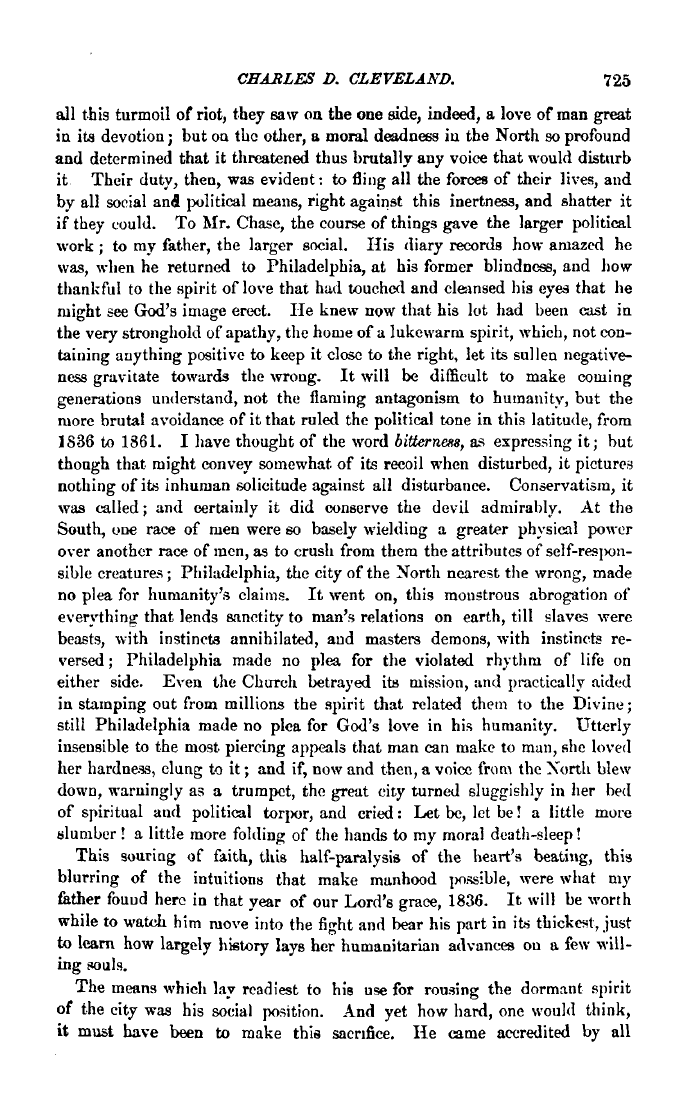 |
||||
 |
||||
| CHARLES D. CLEVELAND. 725 all this turmoil of riot, they saw on the one side, indeed, a love of man great in its devotion; but on the other, a moral deadness iu the North so profound and determined that it threatened thus brutally any voice that would disturb it Their duty, then, was evident: to fling all the forces of their lives, and by all social anfi political means, right against this inertness, and shatter it if they could. To Mr. Chase, the course of things gave the larger political work ; to mv father, the larger social. His diary records ho\v amazed he was, when he returned to Philadelphia, at his former blindness, and how thankful to the spirit of love that had touched and cleansed his eyes that he might see God's image erect. He knew now that his lot had been cast in the very stronghold of apathy, the home of a lukewarm spirit, which, not containing anything positive to keep it close to the right, let its sullen negative-ness gravitate towards the wrong. It will be difficult to make coming generations understand, not the flaming antagonism to humanity, but the more brutal avoidance of it that ruled the political tone in this latitude, from 1836 to 1361. I have thought of the word bitterness, as expressing it; but though that might convey somewhat of its recoil when disturbed, it pictures nothing of its inhuman solicitude against all disturbance. Conservatism, it was called; and certainly it did conserve the devil admirably. At the South, one race of men were so basely wielding a greater physical power over another race of men, as to crush from them the attributes of self-resjxm-sible creatures; Philadelphia, the city of the North nearest the wrong, made no plea for humanity's claims. It went on, this monstrous abrogation of everything that lends sanctity to man's relations on earth, till slaves were beasts, with instincts annihilated, aud masters demons, with instincts reversed ; Philadelphia made no plea for the violated rhythm of life on either side. Even the Church betrayed its mission, and practically aided in stamping out from millions the spirit that related them to the Divine; still Philadelphia made no pica for God's love in his humanity. Uttcrly insensible to the most piercing appeals that man can make to man, she loved her hardness, clung to it; and if, now and then, a voice from the Xortli blew down, waruingly as a trumpet, the great city turned sluggishly in her bed of spiritual and political torpor, and cried: Let be, let be! a little more slumber ! a little more folding of the hands to my moral death-sleep! This souring of faith, this half-paralysis of the heart's beating, this blurring of the intuitions that make manhood possible, were what my father fouud hero in that year of our Lord's grace, 1836. It will be worth while to watoii him move into the fight and bear his part in its thickest, just to learn how largely history lays her humanitarian advances on a few -willing souls. The means which lav readiest to his use for rousing the dormant spirit of the city was his social position. And yet how hard, one would think, it must have been to make this sacrifice. He came accredited by all |